Naomi Klein on the Urgency of a ‘Green New Deal’ for Everyone
The author says the plan must be better than its Depression-era namesake if it is to destroy poverty and fossil fuel dependence at the same time. Naomi Klein appears on Democracy Now! with Amy Goodman. (YouTube screen grab)
Naomi Klein appears on Democracy Now! with Amy Goodman. (YouTube screen grab)
Progressive journalist and activist Naomi Klein urged sweeping change that tackles the climate crisis, capitalism, racism and economic inequality in tandem on Friday in Burlington, Vt. If that seems challenging, add the fact that the clock is ticking and there might not be another chance.
“We need to have started yesterday,” Klein said at the three-day Sanders Institute Gathering on a panel moderated by environmental activist Bill McKibben. “What all of us who follow the science know is that we just can’t lose these four years,” she said, referring to the presidency of climate change denier Donald Trump. The conference, organized by the think tank founded by Vermont Sen. Bernie Sanders’ wife, Jane, is aimed at forming bold progressive agendas for the future.
Progressives are looking to incoming Democratic New York Rep. Alexandria Ocasio-Cortez for leadership as she galvanizes a grassroots effort by the youth-led climate change group Sunrise Movement to reduce fossil fuel dependence. Eighteen members of Congress support the idea of creating a House select committee to look at making a realistic plan by January 2020.
“This is not just about a Green New Deal, this is about a New Deal for the United States of America,” Ocasio-Cortez said at a press conference in Washington, D.C., on Friday. “Because in every moment when our country has reached the depths of darkness, in every moment when we were at the brink, at the cusp of an abyss and we did not know if we would be capable of saving ourselves, we have.”
The United Nations’ Intergovernmental Panel on Climate Change’s (IPCC) recent report outlined what Klein called “a terrifying 12 years” to cut fossil fuel use nearly in half by 2030.
The climate crisis is embedded in nearly every aspect of the issues you see on the front page of the newspaper, but it is rarely framed that way. Mass migration is often fueled by climate instability and food insecurity, while experts predict rising sea levels will leave even more people unrooted in the future. Politicians who take campaign donations from oil and gas companies are more likely to push policies that support them. The sweeping military-industrial complex has a dependence on fossil fuels. And poor people, as we saw most recently in the devastating California fires, are less likely to be able to protect themselves from disaster or recover afterward.
“Great policy does the work of solving problems for real people,” said panelist Abdul El-Sayed, a 2018 Michigan gubernatorial candidate. He mentioned a hypothetical example of a young girl living in Detroit who has asthma from pollution originating at nearby factories and petroleum refineries. Children with asthma are likely to miss school at least one school day every two weeks, he said.
“When we talk about the climate change epidemic let’s think about the roots, and the roots are in those communities where this climate is released and the consequences are babies who can’t go to school because they cannot breathe,” he added.
Klein cautioned against resting on the laurels of past progressive initiatives, which were often racist. “I think when we use the phrase ‘New Deal’ it reminds us there is a historical precedent for responding to collective crisis with transformational change. But it should also be a reminder that that first New Deal didn’t have enough justice embedded in the center by any means,” she said.
The New Deal was a series of programs and reforms enacted by President Franklin D. Roosevelt from 1933 to 1939 that helped the country recover from the Great Depression, but it had serious flaws—particularly in terms of homeownership, an important way for the lower and middle classes to accumulate wealth. The Federal Housing Commission, created in 1934, facilitated racial segregation that persists today, more than 80 years later.
Activist Gus Newport, who was mayor of Berkeley, Calif., from 1979 to 1986, told the panelists that the name “Green New Deal” gives him concern because “redlining came out of the New Deal,” referring to the practice of racial discrimination in mortgage lending. Neighborhoods that were home to African-Americans, Asians, Jews, Catholics and other minorities that experienced unfair treatment by the Home Owners’ Loan Corp. in the 1930s are likely to still be home to minority, low-income residents today. Newport said that black and Latino families targeted by predatory lending during the 2008 financial crisis saw their wealth demolished.
Klein emphasized that the problems of capitalism and the climate crisis are irreconcilably linked; rich people are invested in keeping the system the same, because it works for them. “The IPCC report is very clear … that what is required now is transformation of every aspect of society. In other words, a political revolution,” she said.
Your support matters…Independent journalism is under threat and overshadowed by heavily funded mainstream media.
You can help level the playing field. Become a member.
Your tax-deductible contribution keeps us digging beneath the headlines to give you thought-provoking, investigative reporting and analysis that unearths what's really happening- without compromise.
Give today to support our courageous, independent journalists.
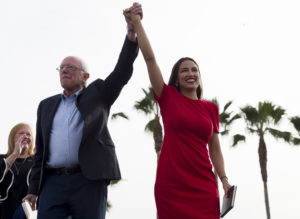
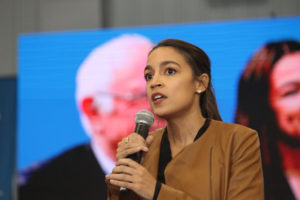

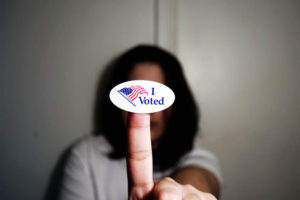
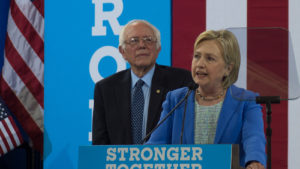
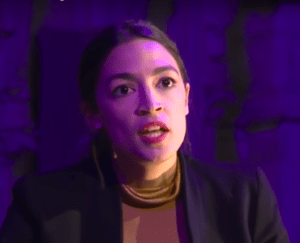
You need to be a supporter to comment.
There are currently no responses to this article.
Be the first to respond.